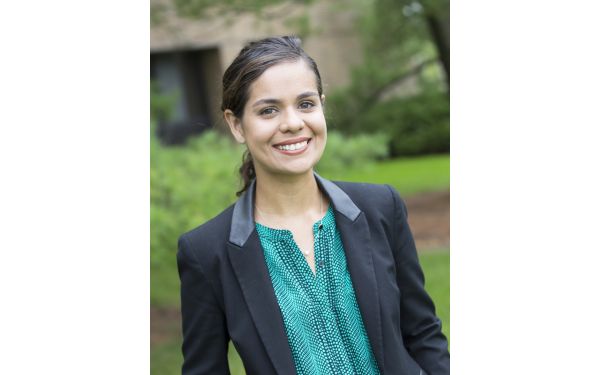Rachel Mourao, assistant professor of journalism at ComArtSci, received the Gene Burd Outstanding Dissertation Award from the International Communication Association (ICA) this year.
“It’s very special,” said Mourao. “You spend a year working on a project, exclusively working on a dissertation, so it’s nice to know that in some way you did good work. It’s a nice way to finish a cycle.”
Mourao was a journalism P.h.D student at the University of Texas at Austin when she met Gene Burd, an associate professor emeritus. She studied under Steve Reese, the associate dean for academic affairs for the Moody College of Communication.
Mourao’s dissertation research focused on a wave of protests in Brazil from 2013-2015, which started out small, but evolved into massive right-wing demonstrations with elite support. She studied how journalists navigated this transformation to cover the protests, what influenced their work and how they made sense of the political strife.
Mourao’s findings contradict literature gathered in the U.S. and Europe that found news portrayal of protesters to be negative.
“The stories focus on spectacle and violence, and some argue that comes from an ideological resistance that journalists have to protesters,” Mourao said. “The story I found was different— it was the opposite of that.”
The majority of the reporters in Mourao’s study were against the demonstrations, especially in 2015, yet their coverage was supportive of the protests.
“It’s really indicative of Brazil— what really drove negative or positive portrayal of protesters was how aligned the protesters were with official sources,” Mourao said.
For example, if there were official sources, meaning elected officials or those appointed by elected officials, that were supportive of the protesters, the coverage of the demonstration would be supportive, regardless of the journalist's personal views.
From Reporting to Research
Mourao was born in Brazil and worked there for several years as a reporter, where she witnessed many of the problems she has encountered in her research. She said her research is a way for her to give back to Brazil.
“I knew I wanted to write something that would shed light on some of the issues faced by the press in developing countries, which are sometimes different and sometimes similar to issues faced by the press in the United States and Europe, where most studies focus,” Mourao said. “My main goal was to show that some of the processes that we take for granted here or that seem really evident in the literature produced in developed countries do not always work the same way in less developed nations.”
Mourao said there is lot of criticism of the press in Brazil, such as claims that the media self-censors and their coverage is against those under the poverty line. As a journalist, she did not see this criticism reflected in the newsroom. Now, her research aims to explain why and how journalists’ coverage reflects the beliefs of those in power.
The Next Step: Broadening the Research
Mourao used content analysis to examine the way the mainstream press covered the demonstrations and compared that to survey data she gathered from journalists. She also has a third element that she hasn’t used yet— the journalists’ tweets.
“I want to know if the coverage they sent on social media is different than what they produced for mainstream newspapers,” Mourao said, “If it is, then there are different norms and expectations of social media. If you are producing a type of content for your employer, and then you are putting out something else for your personal brand, then there are some influences there. So that’s what’s next for me.”
Mourao’s studies focused on the mainstream press, elite journalists and big newspapers from the urban centers of Brazil. She hopes to expand her research by studying how journalists in the poor regions of Brazil cover protests.
“We don’t have a lot of access to [the journalists],”said Mourao. “I have a lot of access to them via survey, but the stories they write are harder to get.”
Mourao said she is still working on dividing the dissertation into smaller studies. She presented two of the papers at the 67th Annual Conference of the ICA. She will be presenting one more at the 2017 Association for Education in Journalism and Mass Communication (AEJMC).
By Rianna N. Middleton
